 Federal Housing Administration (FHA) Commissioner David Stevens testified at a hearing of the House Financial Services Committee on September 22, 2010 regarding “Implementation of Higher FHA Loan Fees and Pending Legislative Proposals to Strengthen the FHA MMIF Fund and Improve Lender Oversight.” Both this and a similar congressional hearing last week on private consumer financing (see, your copy of MHARR’s September 15, 2010 memorandum, “Hearing on Federal Role in Housing Finance”) concern the key issue – the availability of public and private consumer financing – that has been at the root of the industry’s difficulties since its decline began in 1998 (see below).
Federal Housing Administration (FHA) Commissioner David Stevens testified at a hearing of the House Financial Services Committee on September 22, 2010 regarding “Implementation of Higher FHA Loan Fees and Pending Legislative Proposals to Strengthen the FHA MMIF Fund and Improve Lender Oversight.” Both this and a similar congressional hearing last week on private consumer financing (see, your copy of MHARR’s September 15, 2010 memorandum, “Hearing on Federal Role in Housing Finance”) concern the key issue – the availability of public and private consumer financing – that has been at the root of the industry’s difficulties since its decline began in 1998 (see below).
Commissioner Stevens was the only witness at this latest hearing and mainly addressed steps that FHA has already taken and is still considering in order to ensure the future stability and solvency of the Mutual Mortgage Insurance Fund (MMIF) that backs-up most FHA-insured loans.
As previously reported by MHARR, FHA, in a final rule published in the Federal Register on September 3, 2010, raised the eligibility criteria for most FHA-insured mortgages, including some insured through the FHA Title II manufactured housing program. FHA sources have confirmed to MHARR that only Title II mortgages insured under the MMIF will be affected by this rule. Title II manufactured housing loans that are insured through funds other than the MMIF, will not be subject to these new requirements. Similarly, the Title I manufactured housing chattel program, by contrast, according to FHA, is exempt from these changes and is not affected.
As Commissioner Stevens explained to the Committee, under the new rule, a minimum FICO score of 500 would be required to be eligible for an FHA-insured mortgage. For those with FICO scores between 500 and 579, the maximum loan-to-value ratio (LTV) would be 90% (i.e., a minimum 10% down payment would be required) while for those with FICO scores at or above 580, the maximum LTV for purchase loans would go to 96.5% and the maximum LTV for re-financing would go to 97.5%. In accordance with the rule, the new criteria will go into effect on October 4, 2010.
It is important to note, though, as Commissioner Stevens explained to Congress, that other possible changes to the FHA criteria, including stricter limits on seller concessions and/or revised underwriting requirements, are still under consideration by FHA, even though they were not part of the September 3, 2010 rule.
Much of the questioning at the hearing focused on efforts to scale back the role of FHA in the housing finance market. Commissioner Stevens pointed out that the steps being taken by FHA would have that effect. Committee Republicans, in particular, focused on the need for FHA to reduce market share in order to encourage the private market to resume financing. Committee Chairman Barney Frank (D-MA) also urged Commissioner Stevens – who will testify at a similar Senate hearing on September 23, 2010 – to emphasize the need for Senate action on the House-passed FHA reform bill (see, your copy of MHARR’s March 11, 2010 written testimony regarding the FHA Reform Act of 2010) during any lame duck session, since he considers it a bipartisan bill with broad support.
All of these actions (and impending actions) by FHA, and Congress’ interest in reducing FHA’s role within the housing finance market, point to a number of serious issues for the manufactured housing industry that need to be carefully considered. First, manufactured housing primarily serves lower and moderate-income consumers. FHA, like the Government Sponsored Enterprises (GSEs) was created for the specific purpose of helping lower and moderate-income Americans become homeowners. It is thus unconscionable that manufactured housing mortgages are being swept up into “fixes” for problems that our industry and our consumers did not create – that affordable manufactured housing is being lumped together with the six and seven-figure mortgages, sub-prime and otherwise, that today threaten the stability of the MMIF. FHA, instead of discriminating against lower income home buyers, should instead facilitate their ability to obtain financing for homes that they can truly afford – such as manufactured homes. Second, Congress’ expressed interest in reducing the total market share of FHA makes it all the more important that the “duty to serve” mandate is properly implemented by the Federal Housing Finance Agency.
Yet, the message that pairing consumers with affordable manufactured homes would strengthen FHA and the GSEs – and is fundamental to their congressionally-mandated mission (i.e., what MHARR has termed and is promoting in the nation’s capital as manufactured housing consumers’ “exceptionalism” within the overall housing market) – has not been effectively promoted by the finance, retail and post-production segment of the industry’s representation over the 12 years of steady deterioration of the industry’s financing base. Further, this inability to maintain the availability of adequate consumer financing for the industry’s consumers, has had other damaging consequences, as it has spilled-over into – and has negatively affected – the industry’s crucial Title VI regulatory program, where necessary improvements and efforts to put the program back on the correct track based on the 2000 reform law are being undermined and effectively held hostage to financing concerns because the HUD regulatory office also deals with FHA financing.
Full details of these issues will be addressed, in light of continuing economic decline and the impending mid-term elections, at MHARR’s upcoming Fall 2010 Board of Directors meeting.



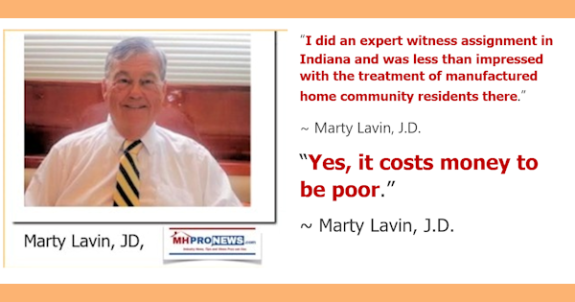
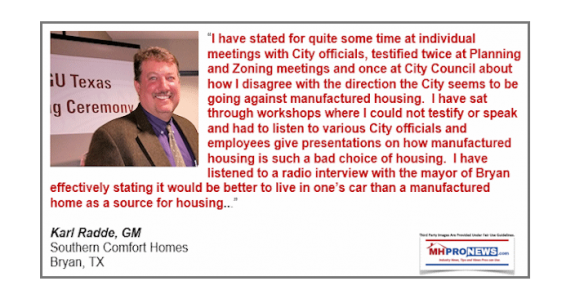
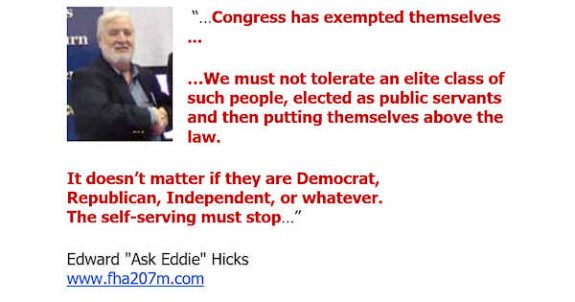
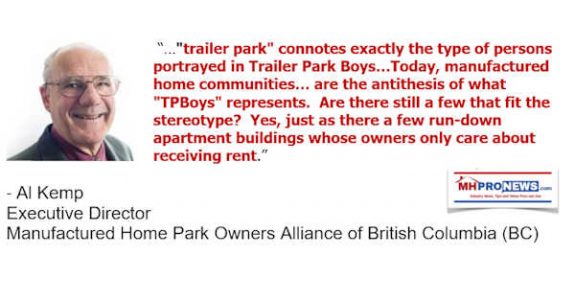
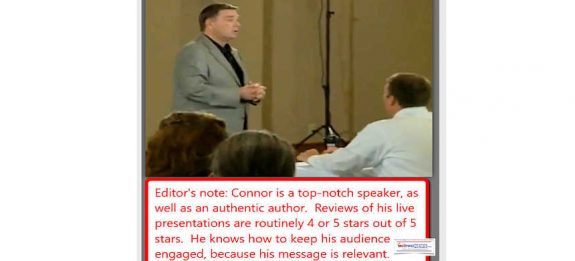
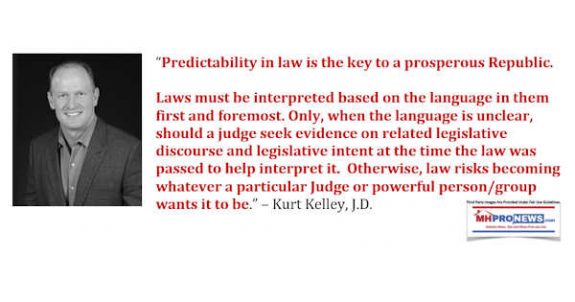

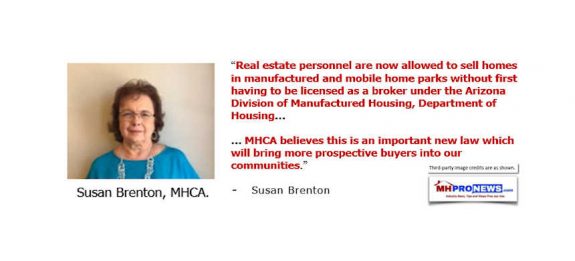
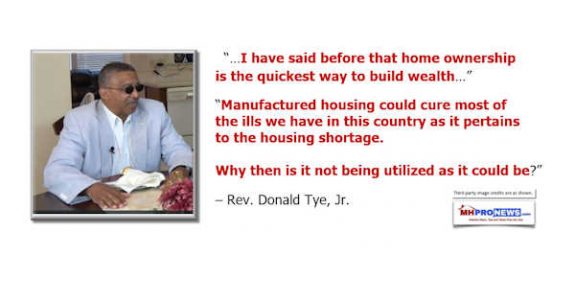
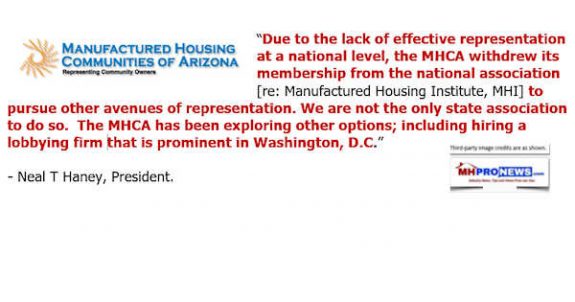

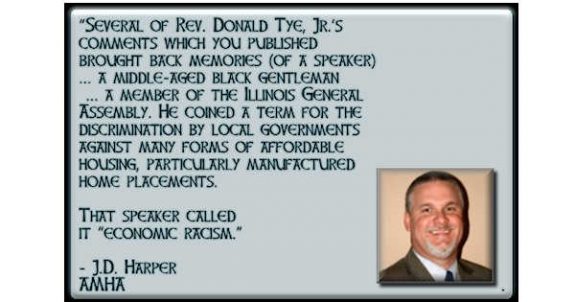
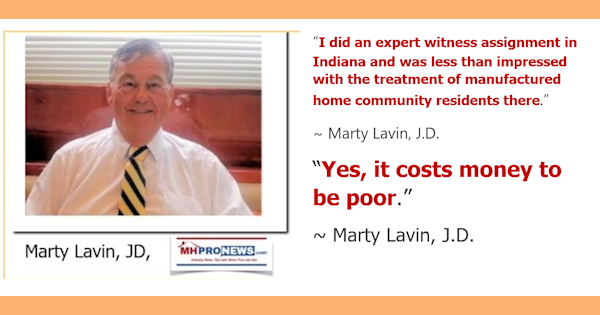
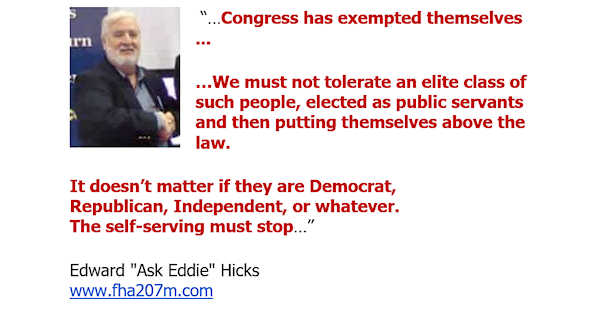
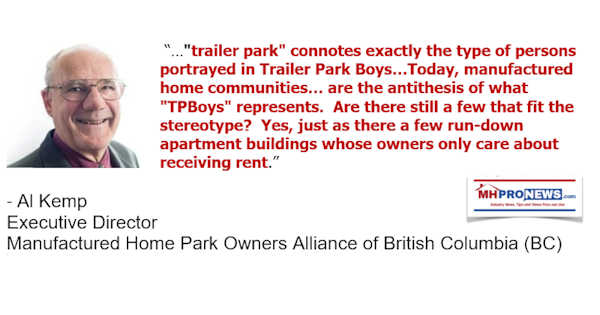
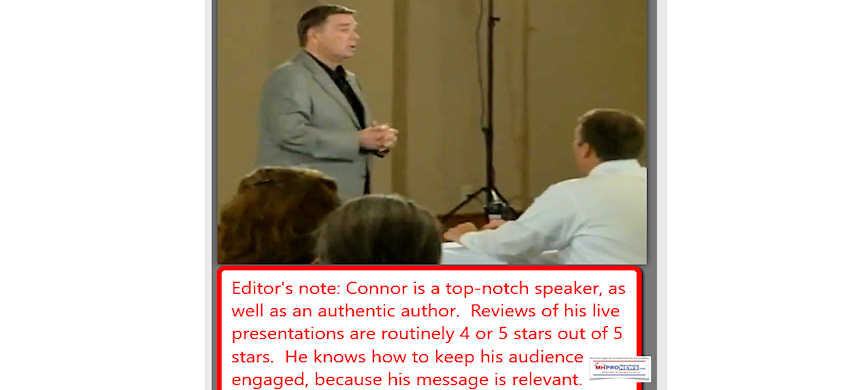
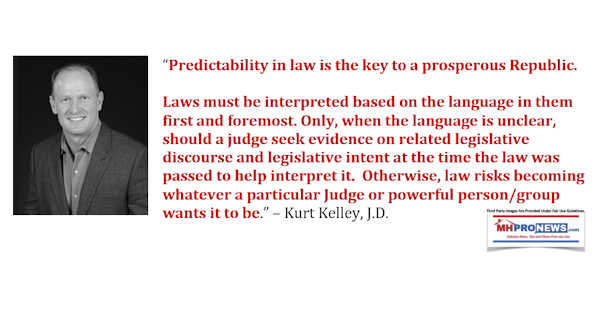

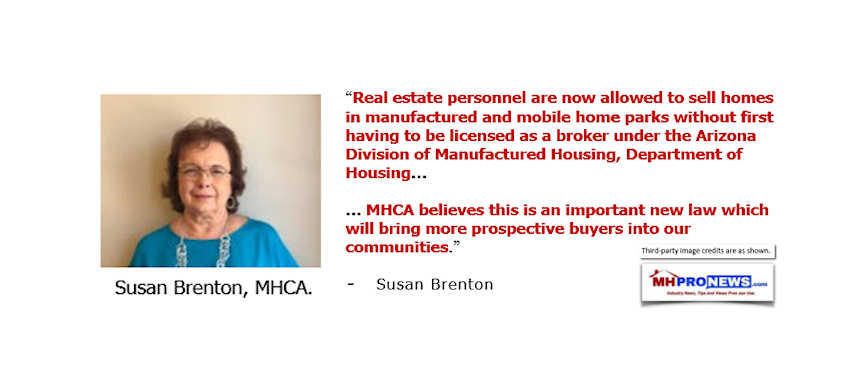
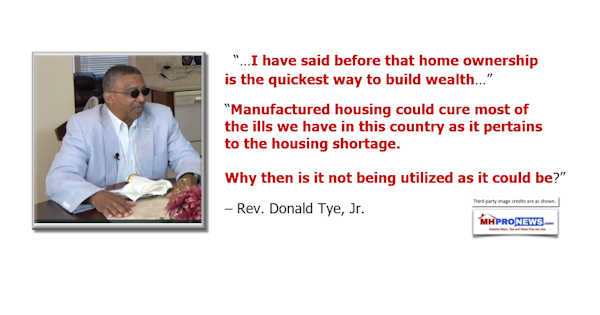
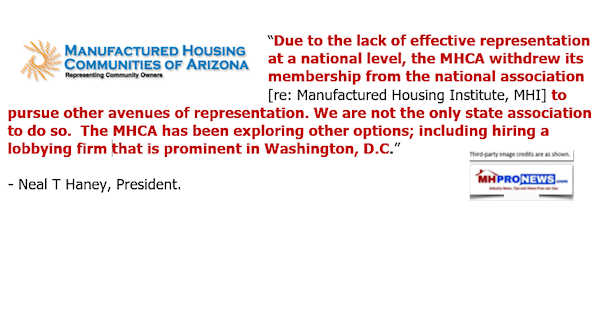

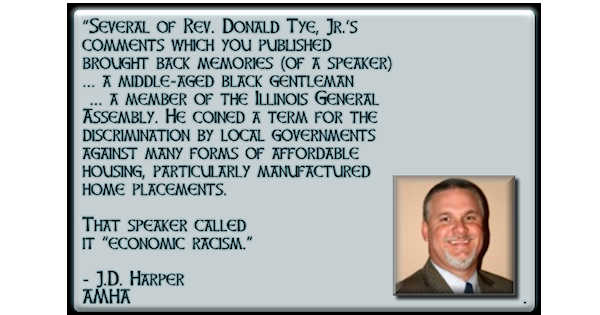
Karl Radde – TMHA, MHI, Southern Comfort Homes – Addressing Bryan City Leaders, Letter on Proposed Manufactured Home Ban
To All Concerned [Bryan City Officials, Others]: As the retail location referenced by Mr. Inderman, I would like to take a moment to address the …